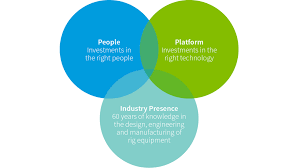Introduction
Process equipment, structures and piping systems may be subjected to severe service conditions including high constant or fluctuating stresses, extreme temperatures and various types of corrosion. This could cause loss of structural integrity, leading to degradation and damage. If such damage is not detected and assessed in a timely manner, it could result in catastrophic failures with potentially enormous consequential losses of life and assets.
To ensure that engineering systems are capable of handling the service conditions in all foreseeable operating scenarios, they must first be designed through the selection of appropriate materials of construction and in accordance with recognized design methodologies and codes.
It is also important to incorporate safeguards and controls to prevent operation outside the "design and operational envelope" and to inspect the process equipment with the view to detect any damage, characterize it, and assess its impact on the equipment "Fitness For Service".
This comprehensive and structured seminar aims at providing a clear understanding of the major degradation mechanisms that process equipment and systems will be subjected to during their operating life, how to identify them, their effect on the integrity of the equipment and what appropriate measures can be taken to prevent and control the resultant damage.
This seminar will feature:
- Main aspects of mechanical testing of structures
- Knowledge of the man types of structural failure
- Aspects of structural integrity and mitigation techniques
- Safe control and best practice use of engineering equipment
- Inspection and non destructive methods
Objectives
By the end of this seminar, participants will enhance their competencies in the following areas:
- Understanding and prediction of the degradation mechanisms that affect process equipment fitness for service and could result in significant potential failures
- The inter-dependence of design, operation, and maintenance for achieving mechanical integrity of mechanical equipment
- Have a sound knowledge of the various types mechanical failure mechanisms, including fracture mechanics, Fatigue, Creep and corrosion
- Understand the basic concepts of inspection and NDT methods and their effective application
- Be familiar with with relevant failure mitigation principles
Training Methodology
The seminar will be conducted along workshop principles with formal lectures and interactive worked examples included in relevant workshops. The emphasis in the seminar will be on the explanation of all technical phenomena and providing answers to problems that are encountered in everyday industrial practice related to structural failure and mitigation techniques.
Each learning point will be reinforced with practical examples. Computer simulations and videos will be used to illustrate the main aspects of the seminar. Delegates will receive electronic versions of the seminar material together with relevant computer simulations and videos.
There will be ample opportunities for active discussion and sharing professional experiences and exchange that will help solidify the gained knowledge.
Who Should Attend?
This seminar is intended for:
- Staff who use or supervise activities requiring the selection, design/fabrication or use of mechanical equipment or component parts
- Engineers who seek a basic understanding of the practical aspects of evaluation of structural integrity
- Operation, technical service and maintenance professionals from various processing plants involved in everyday operation, control, inspection and maintenance of equipment
- Engineers and consultants dealing with planning of new production plants, retrofitting plants and introducing new technologies
- Technical professionals responsible for maintenance and repair of equipment
- Project and asset managers
SEMINAR OUTLINE
DAY 1
Materials Testing and Failure
- Course objectives and overview
- Materials Testing – Tensile, Impact, Hardness
- Types of Failures – Ductile/brittle fracture, Temperature Effects
- Analytical Tools – Visual examination of fracture surface, Fractography, Microscopy
- Industrial Failures – Examples of Failures and Causes
DAY 2
Damage and Interpretation of Failure I
- Stress Concentrating
- Fracture Mechanics
- Fatigue Failure
- High temperature Creep
- Thermal Expansion and deflections
- Worked examples
DAY 3
Damage and Interpretation of Failure II
- Wear, Galing and Fretting
- Principles and types of Corrosion damage and Mitigation
- Vibration of Equipment and Piping
- Vibration Condition Monitoring
- Technical Problem Solving and Decision-making Approaches
DAY 4
Examples of Equipment Failure
- Pressure vessels and life extension
- Heat Exchangers
- Pumps and Compressors
- Mechanical Seals and “O” Rign Failures
- Bearing failure
- Pipes and Repair Techniques
DAY 5
Inspection, Testing and Condition Assessment
- NDT Methods and Techniques
- Inspection of Process Equipment
- Examples of Remaining Life Calculations
- Relevant Inspection Codes, API 570, etc.
- Course Summary and Wrap-up

